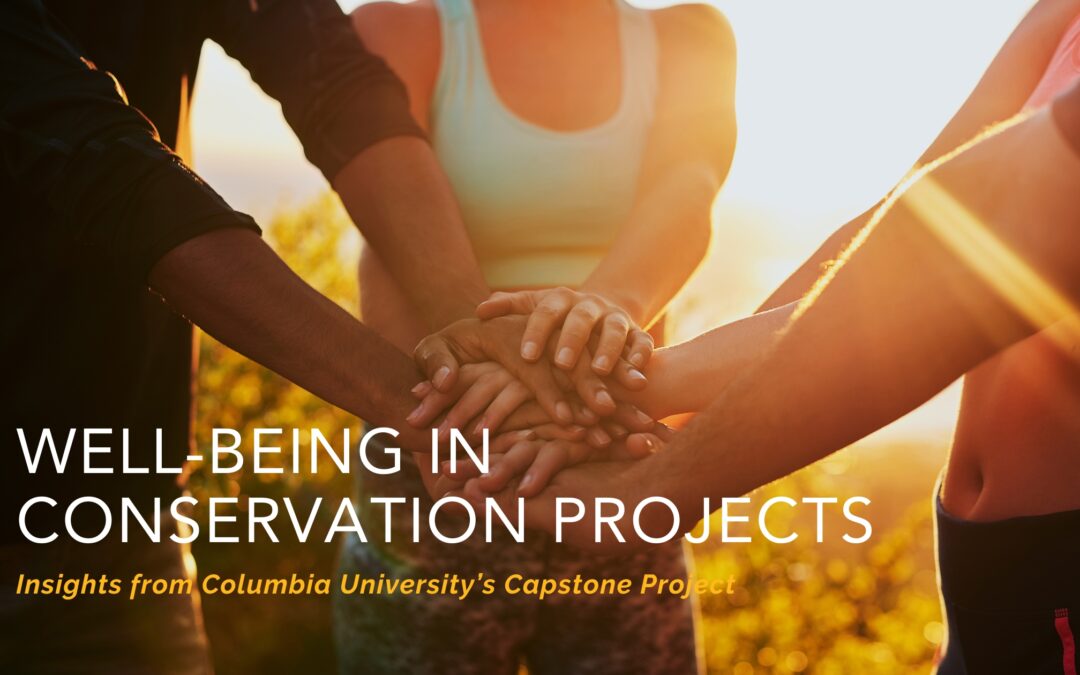At OneNature, our mission is to place well-being at the heart of conservation efforts. This fall, we had the privilege of collaborating with graduate students from Columbia University’s Master of Science in Sustainability Management program on a groundbreaking capstone project that enhances our understanding and approach to community-centered conservation.
The Purpose of the Project
Conservation often struggles to balance environmental priorities with the social, cultural, and economic needs of the communities it serves. This project sought to address this gap by identifying practical ways to define and measure well-being in conservation projects.
Through an in-depth review of 67 case studies and 26 interviews with practitioners, funders, academics, and community leaders, the Columbia team delivered actionable insights to help ensure that conservation efforts are inclusive, culturally relevant, and impactful.
Key Findings
Here’s what the project uncovered:
- The Need for Flexibility and Localization: Effective conservation starts with co-creation, tailoring frameworks to the unique cultural and ecological contexts of each community.
- Blending Quantitative and Qualitative Approaches: Measurable indicators, such as access to resources, must be paired with qualitative insights to reflect emotional and cultural dimensions of well-being.
- Addressing Systemic Barriers: Challenges like inequitable decision-making and mismatched funding priorities highlight the need for inclusive governance and long-term investments.
- Toolkit for Practitioners: The team developed actionable strategies for selecting culturally relevant indicators and fostering community co-governance.
What’s Next for OneNature
This collaboration provides a critical foundation for our work in 2025. The findings will refine our Wild Happiness approach, improve our community co-creation methods, and enhance the Wild Happiness survey, allowing us to better measure and promote well-being in conservation.
A Heartfelt Thank You
We extend our deepest gratitude to the Columbia capstone students and their advisor, Dr. Robert Cook, for their hard work and dedication. Their contributions have brought us closer to our vision of a world where people, wildlife, and the planet thrive together.
Join Us in Transforming Conservation
Stay connected for more updates and ways to support this movement. Together, we can make 2025 a year of transformative change for communities and nature.
